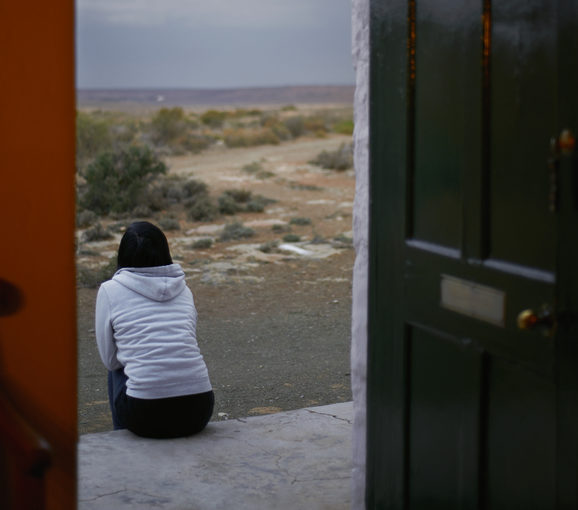What is Cultural Adjustment?
Cultural adjustment is the process of adapting to the different expectations and environment of a new culture. It’s important to undergo this process when living in new cultures to be comfortable and successful in your new environment.
Although rewarding, starting a new adventure in another country or city, or living in a different culture, can be a challenging experience. Understandably, adjusting to a new culture takes time and effort, and some people navigate the stages of cultural adjustment more quickly than others. While it’s completely normal to feel uncomfortable in a foreign culture, it’s essential to seek help if you’re experiencing any mental health concerns.

Understanding Cultural Adjustment
Cultural adjustment is a process that individuals go through when they move to a new country or culture. It involves adapting to new customs, values, and ways of life, which can be challenging and overwhelming at times. Understanding cultural adjustment is essential for individuals to navigate their new environment successfully.
Cultural adjustment is a normal part of the study abroad experience, and it’s not something to be ashamed of. It’s an opportunity for growth and learning, and with patience and self-care, individuals can overcome it and thrive in their new environment.
Stages of Cultural Adjustment
Navigating cultural differences can be challenging, especially if you’re living in a new country for the first time. Cultural adjustment is an ongoing process, and people typically pass through four distinct phases while coming to terms with their new surroundings:
-
Honeymoon: During the honeymoon phase, you feel excited by your new friends, new surroundings, and new experiences. This phase is often characterized by feelings of excitement, optimism, and anticipation.
-
Crisis: The crisis phase is sometimes referred to as ‘culture shock,’ as people may experience psychological distress during this phase of adjustment. Culture shock can lead to feelings of anxiety, doubt, and homesickness. It’s important to note that culture shock does not necessarily occur suddenly; it can gradually influence a person’s mood over time. If you’re experiencing difficulty moving past the crisis phase, therapy is the first step toward accepting your new situation.
-
Recovery: During the recovery phase, you become more aware of cultural norms, from the culture’s sense of humor to body language, and you start feeling more comfortable with cultural differences. Throughout the recovery phase, you’ll learn more about norms and cultural sensitivity. In addition, you’ll experience a sense of achievement in mastering the new culture.
-
Adjustment: During the adjustment phase, your new culture no longer feels so foreign or different from your home culture. You’ll be able to accept your own culture and the host culture, and you’ll start feeling like a member of the local community.
Mental Health Challenges and Reverse Culture Shock
People have vastly different experiences when it comes to cultural adjustment, and it’s completely normal to experience symptoms of culture shock as you’re adjusting to a new culture. During the initial Honeymoon phase, individuals often focus on the positive aspects and pleasing differences they encounter in the new culture. Meanwhile, some people may experience reverse culture shock or re-entry shock, finding it difficult to adjust to their home country after returning.
Some common symptoms of culture shock include:
-
Increased irritability
-
Feelings of sadness or loneliness
-
Self-doubt
-
Homesickness
-
Confusion or disorientation

Find a Therapist to Help With Cultural Adjustment
Get personalized matchesAdapting to a New Culture
Adapting to a new culture requires time, effort, and patience. It’s essential to be open-minded and receptive to new experiences, and to seek support from friends, family, or a mentor. Engaging in cultural activities and events, practicing self-care and stress management techniques, and being patient and allowing time for cultural adaptation to occur are all crucial steps in adapting to a new culture. Additionally, holding onto one’s own cultural traditions is essential during the adjustment phase, as it can provide a sense of comfort and familiarity in a new environment.
Returning Home: Reverse Culture Shock
Returning home after studying abroad can be a challenging experience, known as reverse culture shock. It’s caused by readjusting to life in one’s home country after adapting to a new culture. Symptoms of reverse culture shock can include feeling disoriented or disconnected from family and friends, difficulty adjusting to familiar customs and expectations, feeling frustrated or irritable, difficulty communicating with locals, and feeling homesick or nostalgic for the host culture.
To cope with reverse culture shock, it’s essential to stay informed and prepared, take care of one’s physical and mental health, and seek help and support when needed. With time and effort, individuals can overcome reverse culture shock and readjust to life in their home country.
Treatment Options for Cultural Adjustment in a New Environment
Like any other life transition, moving to a new place and navigating cultural misunderstandings presents a unique set of mental health challenges. Living in culturally diverse cities can provide additional support and resources for individuals undergoing cultural adjustment. Ultimately, how you cope with these mental health challenges can help you build resilience, find strength, and feel comfortable in your host country. Some helpful resources for navigating cultural adjustment include:
-
Whether you’re experiencing mental health symptoms or feeling stressed, therapy can help you address the difficulties of living in a new place. Individual therapy can help you assess your thoughts and behaviors to make more positive changes, while group therapy can help you connect with like-minded people.
-
Social support: Although it might feel tempting to withdraw, it’s important not to isolate yourself during this time. Stay connected to loved ones from your home country, and search for new friends and activities in your new culture that match your interests. If you’re an international student, consider reaching out to other international students to talk about your adjustment experience.
-
Educational resources: Talk to locals, try picking up the native language, and explore your local community. In addition, talk or read about other people’s experiences in new countries so you can find different ways to practice cultural sensitivity.
-
Healthy lifestyle choices: Eating a balanced diet, getting enough sleep, and taking care of your physical health can help you cope with the ups and downs of navigating a new culture.
-
Hotlines. If you’re experiencing a mental health crisis, call the National Suicide Prevention Lifeline at 1-800-273-8255 for immediate support.
Therapy for Cultural Adjustment
Whether you’re moving to a new country as an international student or planning your next adventure, culture shock can affect anyone. Therapy in more culturally diverse cities can offer unique perspectives and support for individuals experiencing culture shock. It’s normal to feel like a foreign visitor when you leave your own country behind, regardless of the length of time. Therapy is the best way to overcome any feelings of disorientation and regain your confidence.
Reach out to a mental health provider through WithTherapy. We’ll connect you to a psychologist, counselor, or social worker you feel comfortable with, regardless of your personal preferences and requirements. One of our experienced therapists will help you learn valuable insights about your new culture, explore different ways to cope with stress, and find your comfort zone to set you up for success in your new environment.
Find a Therapist to Help With Cultural Adjustment




